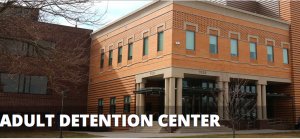 Adult Detention Center of Prince William County and Manassas
Adult Detention Center of Prince William County and ManassasBy Prince William County Government
The Prince William Board of County Supervisors recently accepted a $351,909 grant from the Virginia Department of Criminal Justice Services to continue the Jail Mental Health Pilot Program, which helps women with mental illness reintegrate into society after they complete their sentences at the Adult Detention Center and are released.
This includes helping them with things like job searches via a recommended site, dealing with trauma, getting the medication they need and accessing services after they are released from jail.
The number of female inmates fluctuates around 100, said Resident in Counseling Jail Therapist Tamara Carter, who oversees the program.
The program, which is similar to the men's DORM program, is divided into two portions. There is the therapeutic side called Recovery in a Supported Environment, or RISE, which provides support while women are in jail. The Supportive Transition After Release, or STAR, a portion of the program provides help to women returning to the community.
Carter said job preparation during the jail program helps the women set expectations. "Some of the ladies never really had jobs, so they don't know what they want to do. We talk to them about what they can do within the scope of their criminal. Some job opportunities are going to be off-limits to them based on their charges and things of that nature. We talk about what's realistic."
To help assist the program participants with job searches, there is a lot of legwork and phone calls to pair former inmates with employers who are willing to hire women with criminal records. "At least when they begin their job hunting, they have good places to start."
The program also provides a supply of medications to help the women bridge the gap between the time they are released from jail and the time they find medical care, Carter said. "We recognize that there may be a lapse in insurance. It may be a while before they're able to reconnect with a therapist or a psychiatrist. We give them those medications when they leave so that they don't decompensate so that they don't have a mental health crisis and slip back into psychosis or anything like that and end up making a bad decision that lands them back in jail."
They also refer women who are being released to Prince William County Community Services, which can help with coordinating medications along with medical and personal appointments to help former inmates form a seamless transition.
The voluntary program also offers classes programs on self-esteem, ACT Raising Safe Kids, stress reduction for post-traumatic stress disorder, trauma-based yoga, art therapy, prerelease mentoring and women's wellness.
Helping the participants find a place to live might also help keep them from returning to jail, Carter said. The program connects the women with the Oxford House, a national housing program to help women with criminal records.
All of the facets of the program are designed to help women succeed outside of jail, Carter said. "We're just constantly looking for ways to help this population and developing our community network so that we have support for these ladies and that they are able to be successful when they leave here."
Support Bristow Beat - Donate Today!